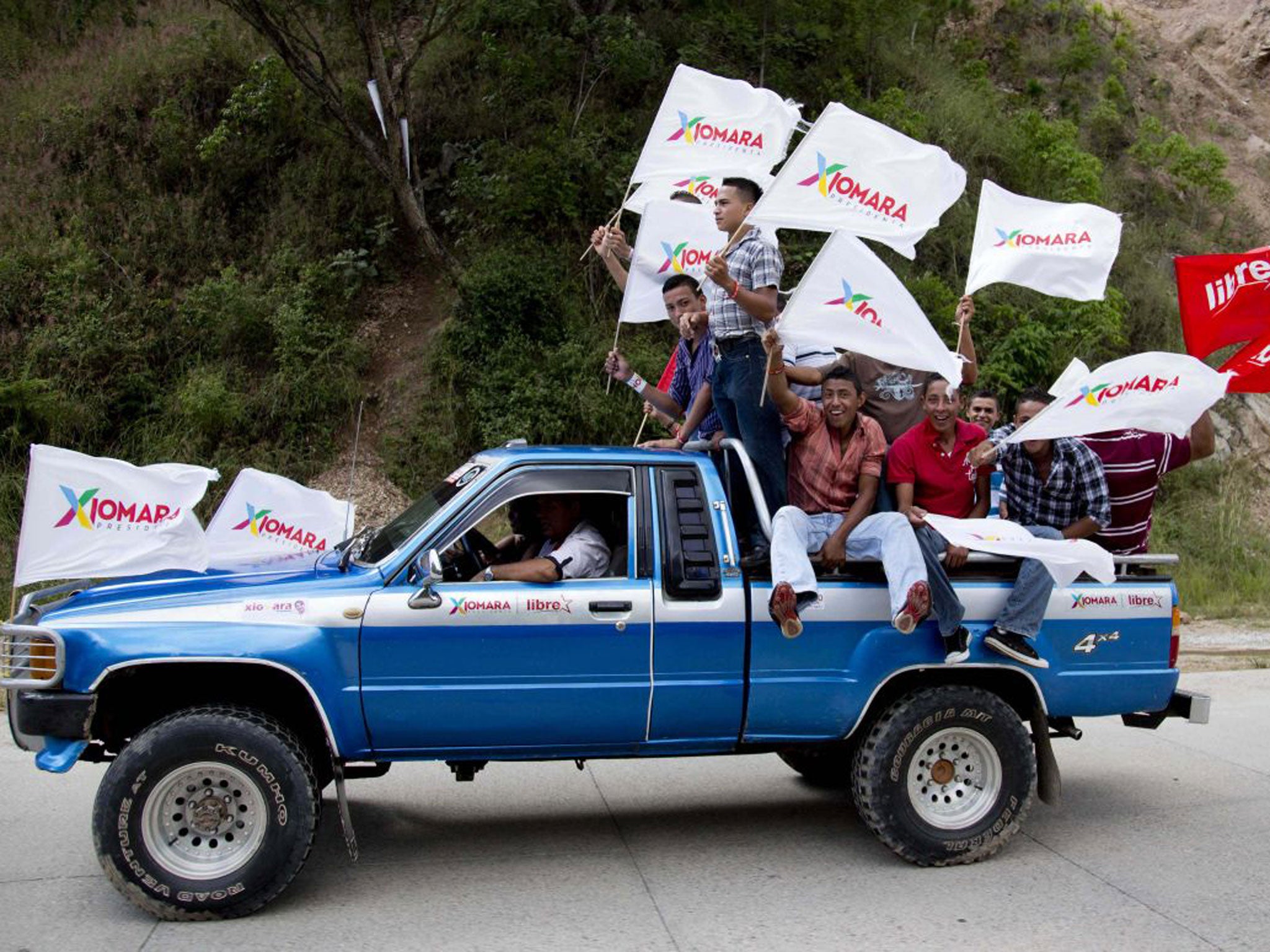Hondurans head to polls as country seeks relief from violence and poverty

Your support helps us to tell the story
From reproductive rights to climate change to Big Tech, The Independent is on the ground when the story is developing. Whether it's investigating the financials of Elon Musk's pro-Trump PAC or producing our latest documentary, 'The A Word', which shines a light on the American women fighting for reproductive rights, we know how important it is to parse out the facts from the messaging.
At such a critical moment in US history, we need reporters on the ground. Your donation allows us to keep sending journalists to speak to both sides of the story.
The Independent is trusted by Americans across the entire political spectrum. And unlike many other quality news outlets, we choose not to lock Americans out of our reporting and analysis with paywalls. We believe quality journalism should be available to everyone, paid for by those who can afford it.
Your support makes all the difference.Hondurans go to the polls today to choose a new president, in a country reeling from violence, poverty and the legacy of a 2009 coup, and if polls are accurate, the vote could fail to produce a clear winner.
The election pits Xiomara Castro, whose husband Manuel Zelaya was overthrown in a military-backed coup, against Juan Orlando Hernandez, the candidate of the ruling conservative National Party.
No problems were reported after polling places opened at 8am local time.
Polls show the two candidates in a statistical tie, raising fears of a disputed result that could produce more instability and protests in a failing state with 8.5 million people and the world's highest homicide rate.
Many, including US Ambassador in Honduras, Lisa Kubiske, have called on both candidates to wait for official results before declaring victory, a process that could take several days.
Castro, 54, had been leading for months as the candidate for change, promising relief from the violence and poverty that have only increased in the four years since President Porfirio Lobo took office.
Hernandez, 45, has seen his numbers surge in recent weeks by casting himself as the candidate of law and order, the top issue for most voters in a country overrun by gangs trafficking much of the cocaine heading from South America to the US.
As president of Congress, Hernandez has pushed through legislation creating a military police force to patrol the streets in place of the National Police, which are penetrated by corruption and often accused of extrajudicial killings.
About 250 international observers from the European Union, the United States and the Organization of American States are monitoring the election. The constitution says the victor needs to win only by one vote. There is no runoff, and the electoral tribunal decides whether a recount is necessary.
Zelaya, a wealthy rancher, was deposed by his own Liberal party after he started taking a populist line and aligned himself with the late Venezuelan President Hugo Chavez. He was attempting to hold a referendum on whether to reform the constitution, something the Supreme Court called illegal, when he was whisked out of the country at gunpoint.
The National Party won regularly scheduled elections later that year.
AP
Join our commenting forum
Join thought-provoking conversations, follow other Independent readers and see their replies
Comments